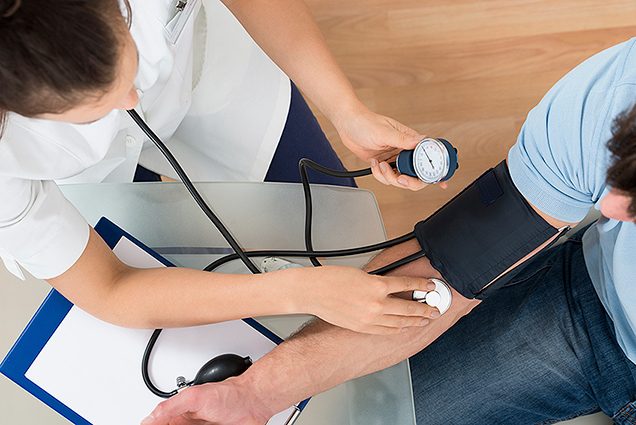
Hidden salt must prompt hearty conversations
Millennials enlisted to save nation’s blood pressure
Dangerous levels of hidden salt in packaged foods – including bread – make it “almost impossible” to stay within safe limits for salt intake, fuelling an epidemic of high blood pressure and making it vital that families discuss heart health over meals.
This stark warning coincides with the start of May Measurement Month, a month long campaign to measure the nation’s blood pressure. A new campaign video has been launched, which features young adults telling their parents to get their blood pressure checked, using the timeless parenting phrase, “Because I say so”. High blood pressure is the number one cause of heart attacks and strokes in Australia, with experts saying a reduction in average salt intake would significantly reduce the number of deaths from strokes and heart disease.
Australians are being encouraged to share the video on social media, along with the hashtag #BecauseIsayso. The campaign is supported in Australia by the High Blood Pressure Research Council of Australia, The George Institute for Global Health and the Servier Foundation.
High Blood Pressure Research Council of Australia President, Professor Michael Stowasser said enlisting the help of millennials (20-40 year olds) “to lovingly nag their parents to get their blood pressure checked will go a long way towards preventing heart attacks and strokes caused by the condition”.
“Six million Australians have high blood pressure and around two thirds of these have uncontrolled high blood pressure,” he said.
“Regular blood pressure checks and appropriate treatment can prevent thousands of heart attacks and strokes, and who better to reach mum and dad than their grown-up children?
“Blood pressure is a silent killer, so there is no way of knowing if you have high blood pressure unless you get checked regularly,” Prof Stowasser added.
The George Institute for Global Health’s Senior Director, Professor John Chalmers, said linking excess salt consumption with the problem of high blood pressure should prompt families sharing a meal to talk about when they last had their blood pressure checked.
“Most adults aren’t aware of how much salt they are consuming over the course of a day, but it can add up to alarming levels, just as they can’t know if they have high blood pressure without being checked.
“We know that if you reduce the amount of salt you eat, you can reduce your risk of high blood pressure. We would urge families who are sitting down to eat a meal to have a conversation about how much salt they are eating and their heart health,” Prof Chalmers concluded.
Research has shown that Australians consume around 9 grams of salt per day, far exceeding the five grams (200mg sodium) or less recommended by the World Health Organisation. Children should be eating even less.
Foods can be high in hidden salt even if they do not taste salty. Crumpets can contain as much salt as three bags of crisps. A single ham and cheese sandwich can contain as much as 3 grams of salt, two thirds of the daily allowance.
In Australia, it is estimated that reducing the average salt intake by three grams per day could lead to a 22 per cent reduction in deaths from strokes and a 16 per cent reduction in deaths from coronary heart disease.
Dr Jacqui Webster, Director of World Health Organization Collaborating Centre on Salt Reduction at The George Institute, said: “Tough measures need to be taken to bring salt consumption to safe levels. The food industry needs to bring down the salt content of their products and food labelling needs to be simplified to highlight high salt foods.
“There are many things Australians can do, including eating more fresh fruit and veg, cutting back on processed foods high in salt such as bread, cheese and cold meats, using our FoodSwitch app to help switch to less salty alternatives, and of course getting their blood pressure checked regularly,” Dr Webster added.
Professor Stowasser said that Australians tended to be complacent about high blood pressure which is often not perceived to be as serious as other risk factors for heart attack and stroke.
“We hope the #BecauseIsayso campaign will help encourage more families to discuss heart health. Getting your blood pressure checked is easy. Some pharmacies offer free blood pressure checks or simply make an appointment to see your doctor,” he concluded.




